MaryAnn Bernal's Blog, page 218
November 20, 2014
History Trivia - Barons swear fealty to Edward I
November 20
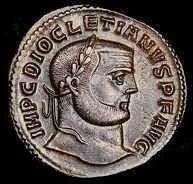
284 Diocletian was chosen as Roman Emperor.
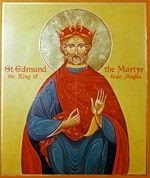
869 Edmund the Martyr died. Saint Edmund was king of East Anglia. His gruesome death at the hands of the Danes led to legends and a shrine at what is now Bury St. Edmund's, West Suffolk.
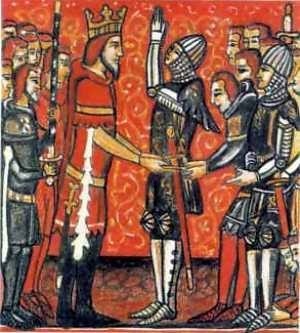
1272 Barons swore fealty to Edward I. Upon the death of his father, King Henry III, Edward received the fealty of the English barons and succeeded to the throne.


284 Diocletian was chosen as Roman Emperor.

869 Edmund the Martyr died. Saint Edmund was king of East Anglia. His gruesome death at the hands of the Danes led to legends and a shrine at what is now Bury St. Edmund's, West Suffolk.

1272 Barons swore fealty to Edward I. Upon the death of his father, King Henry III, Edward received the fealty of the English barons and succeeded to the throne.

Published on November 20, 2014 05:09
November 19, 2014
Scribbler Tales (Volume One) now available on Audible

Narrated by Roberto Scarlato “Scribbler Tales is a unique mix of genres in one anthology rich with tension, humanity and genuine emotion. Unconventional settings and unexpected twists are bound to leave you pondering long after you close this book.”
In Desperate Measures, Audrey learns of Paul’s duplicity when human cloning experiments go awry. Forbidden Lorebeckons Arianna and Ethan into a haunted cemetery where they are confronted by a gathering of witches with evil intent . Adrian must challenge his father to marry Rina or suffer the fate of star-crossed lovers in Forever Lost. In The Hourglass, Flair makes a covenant with the Devil to keep Brice alive. Aaron reflects upon his childhood as a military brat in Sail with Me.Audible Link

Published on November 19, 2014 16:15
History Trivia - The Council of Clermont discusses sending the First Crusade to the Holy Land
November 19

1095 The Council of Clermont, called by Pope Urban II to discuss sending the First Crusade to the Holy Land, began.

1367 League of Cologne (medieval military alliance against Denmark signed by cities of the Hanseatic League on their meeting called Hansetag in Cologne) approved war against Denmark and Norway.


1095 The Council of Clermont, called by Pope Urban II to discuss sending the First Crusade to the Holy Land, began.

1367 League of Cologne (medieval military alliance against Denmark signed by cities of the Hanseatic League on their meeting called Hansetag in Cologne) approved war against Denmark and Norway.

Published on November 19, 2014 05:43
November 18, 2014
Rachel Love interviews the respected Author Mary Ann Bernal on Have You Read the Book

Rachel Love interviews the respected Author Mary Ann Bernal on today's show.
Mary Ann Bernal, author of The Briton and the Dane novels, is an avid history buff whose area of interest focuses on Ninth Century Anglo-Saxon Britain during the Viking Age.

Published on November 18, 2014 14:05
History Trivia - William Tell shoots an apple off of his son's head
November 18

326 Old St. Peter's Basilica in Rome was consecrated.
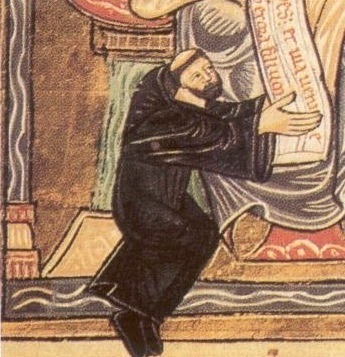
942: Saint Odo of Cluny died. The second abbot of the great monastery at Cluny, Odo achieved exemption from all but papal authority for his monastic community and reformed monasteries in Gaul and Italy.
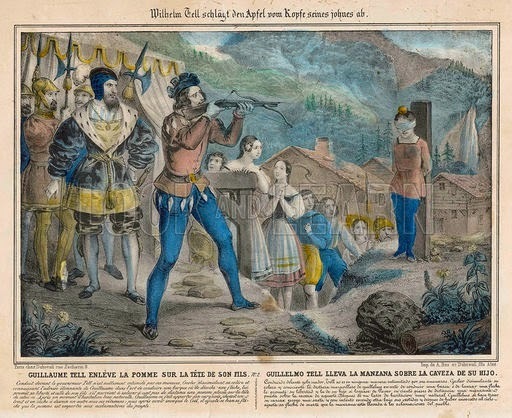
1307 William Tell shot an apple off of his son's head. The historical existence of Tell is disputed. According to popular legend, he was a peasant from Bürglen in the canton of Uri in the 13th and early 14th centuries who defied Austrian authority, was forced to shoot an apple from his son’s head, was arrested for threatening the governor’s life, saved the same governor’s life en route to prison, escaped, and ultimately killed the governor in an ambush. These events supposedly helped spur the people to rise up against Austrian rule.
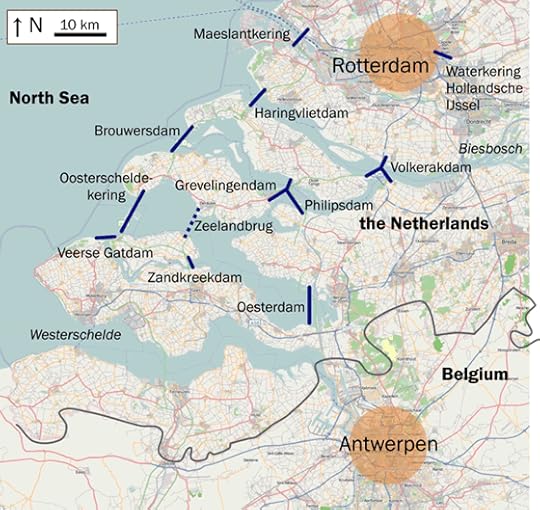
1421 A seawall at the Zuiderzee dike in the Netherlands broke, flooding 72 villages and killing about 10,000 people.
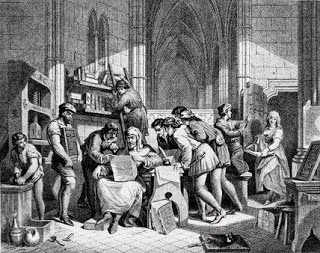
1477 William Caxton produced Dictes or Sayengis of the Philosophres, the first book printed on a printing press in England.


326 Old St. Peter's Basilica in Rome was consecrated.

942: Saint Odo of Cluny died. The second abbot of the great monastery at Cluny, Odo achieved exemption from all but papal authority for his monastic community and reformed monasteries in Gaul and Italy.

1307 William Tell shot an apple off of his son's head. The historical existence of Tell is disputed. According to popular legend, he was a peasant from Bürglen in the canton of Uri in the 13th and early 14th centuries who defied Austrian authority, was forced to shoot an apple from his son’s head, was arrested for threatening the governor’s life, saved the same governor’s life en route to prison, escaped, and ultimately killed the governor in an ambush. These events supposedly helped spur the people to rise up against Austrian rule.

1421 A seawall at the Zuiderzee dike in the Netherlands broke, flooding 72 villages and killing about 10,000 people.

1477 William Caxton produced Dictes or Sayengis of the Philosophres, the first book printed on a printing press in England.

Published on November 18, 2014 04:29
November 17, 2014
Vases in Pompeii Reveal Panic Before Eruption

An unfinished vase from the Pompeii site.Laëtitia Cavassa
by Rossella Lorenzi
French and Italian archaeologists digging out a pottery workshop in Pompeii have brought to light 10 raw clay vases, revealing a frozen-in-time picture of the exact moment panicked potters realized they were facing an impending catastrophe.
The vases were found sealed under a layer of ash and pumice from Mount Vesuvius' devastating eruption of 79 A.D. and it appears they were just ready to be fired.
See Photos of the Pottery Workshop Frozen in Time
They were dropped and abandoned, along with the kilns, after frightened potters saw a pine tree-shaped column of smoke bursting from Vesuvius on Aug. 24, 79 A.D.
Reaching nine miles into the sky, the column began spewing a thick pumice rain. Like many Pompeii residents, the scared potters probably rushed in the streets, trying to leave the city.
"They abandoned the workshop and everything they were doing at that moment," dig director Laëtitia Cavassa of the Center Jean Bérard, told Discovery News.
The pottery workshop was found in the area just outside the Herculaneum Gate. It consists of at least three rooms and two kilns.
‘Pompeii:’ 10 Strange Facts About the Roman Empire
"All the tools for the production of vases came to light with this excavation, including the pottery wheels," Fabio Galeandro, archaeologist at Pompeii surperintendency, told Discovery News.
Decorated with small carvings, the newly unearthed vases were used to pour wine or water.
"They are really unique items. The potters made them with clay, embellished them with decorations, and were ready to place them into the kiln when the Vesuvius erupted," Cavassa said.
Eventually, over the centuries, the clay dried naturally, leaving a unique material for archaeologists to research.
"These vases are direct evidence that the workshop was fully active at the moment of the eruption. They represent a key element in the study of craft activities in the Roman town," Pompeii's archaeological superintendency said in a statement.
Discovery News

Published on November 17, 2014 12:30
History Trivia - Elizabethan era begins
November 17

284 Diocletian was proclaimed emperor by his soldiers.
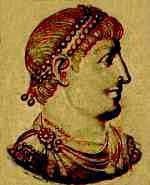
375 Enraged by the insolence of barbarian envoys, Valentinian, the Emperor of the West, died of apoplexy in Pannonia in Central Europe.

680 Saint Hild of Whitby died. Hild or Hilda founded Streaneshalch Abbey (now Whitby) and was one of the most renowned abbesses of Anglo-Saxon England.

1292 Edward I of England made John Balliol king of Scotland, marking the start of increased English control.
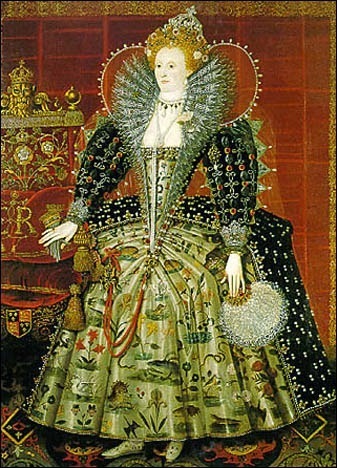
1558 Elizabethan era began. Queen Mary I of England died and was succeeded by her half-sister Elizabeth I of England who was not officially crowned until January.


284 Diocletian was proclaimed emperor by his soldiers.

375 Enraged by the insolence of barbarian envoys, Valentinian, the Emperor of the West, died of apoplexy in Pannonia in Central Europe.

680 Saint Hild of Whitby died. Hild or Hilda founded Streaneshalch Abbey (now Whitby) and was one of the most renowned abbesses of Anglo-Saxon England.

1292 Edward I of England made John Balliol king of Scotland, marking the start of increased English control.

1558 Elizabethan era began. Queen Mary I of England died and was succeeded by her half-sister Elizabeth I of England who was not officially crowned until January.

Published on November 17, 2014 05:11
November 16, 2014
The Briton and the Dane novels are featured in the Books Direct 2014 Christmas Giveaway
 GiveawayEnter the giveaway for a chance to win some great prizes. Prizes and entry options will be updated daily, so check back often.
GiveawayEnter the giveaway for a chance to win some great prizes. Prizes and entry options will be updated daily, so check back often.Entry-Form Enter to win an ebook of the following titles by Mary Ann Bernal The Briton and the Dane: The Complete TriologyThe Briton and the Dane: ConcordiaThe Briton and the Dane: TimelineScribbler Tales (Volume One) Books Direct

Published on November 16, 2014 08:33
History Trivia - Codex Justinianus published
November 16

42 BC Tiberius was born. He was Roman Emperor from 14-37 AD, during the adult life of Christ. 13 Tiberius' triumphant procession through Rome after his siege of Germany occurred this day.
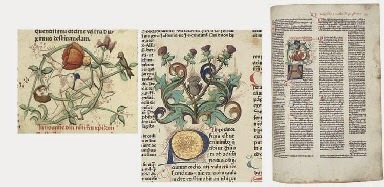
534 A second and final revision of the Codex Justinianus (collection of the Roman imperial
constitutions mainly referring to those of the age of Hadrian) was published.
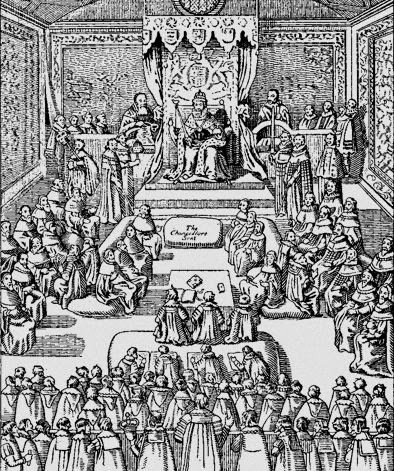
1272 King Henry III of England died. Only nine years old when his father, King John, died, Henry was the first English monarch to be crowned while still a child. Upon reaching adulthood, his indifference to tradition and lack of effective ruling ability resulted in the barons forcing him to agree to a series of reforms known as the Provisions of Oxford.


42 BC Tiberius was born. He was Roman Emperor from 14-37 AD, during the adult life of Christ. 13 Tiberius' triumphant procession through Rome after his siege of Germany occurred this day.

534 A second and final revision of the Codex Justinianus (collection of the Roman imperial
constitutions mainly referring to those of the age of Hadrian) was published.

1272 King Henry III of England died. Only nine years old when his father, King John, died, Henry was the first English monarch to be crowned while still a child. Upon reaching adulthood, his indifference to tradition and lack of effective ruling ability resulted in the barons forcing him to agree to a series of reforms known as the Provisions of Oxford.

Published on November 16, 2014 05:11
November 15, 2014
History Trivia - Battle of Winwaed - Penda of Mercia defeated by Oswiu of Northumbria
November 15

655 Battle of Winwaed: Penda of Mercia was defeated by Oswiu of Northumbria. Although the battle was said to be the most important between the early northern and southern divisions of the Anglo-Saxons in Britain, few details are available. Significantly, the battle marked the effective demise of Anglo-Saxon paganism.

1397 Pope Nicholas V was born. Known as the Humanist Pope, he had a significant role in the founding of the Vatican Library.
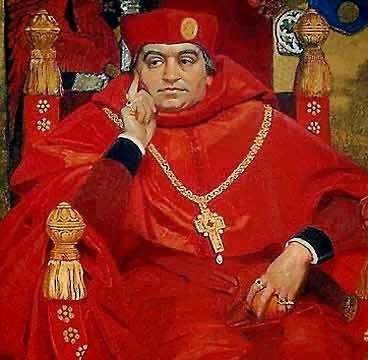
1515 England's Thomas Wolsey was invested as a Cardinal.


655 Battle of Winwaed: Penda of Mercia was defeated by Oswiu of Northumbria. Although the battle was said to be the most important between the early northern and southern divisions of the Anglo-Saxons in Britain, few details are available. Significantly, the battle marked the effective demise of Anglo-Saxon paganism.

1397 Pope Nicholas V was born. Known as the Humanist Pope, he had a significant role in the founding of the Vatican Library.

1515 England's Thomas Wolsey was invested as a Cardinal.

Published on November 15, 2014 05:31



